Download Virtual Box from https://www.virtualbox.org/wiki/Downloads and follow the instructions to install it.
At the time of writing this was the section where the installer files were referenced

Run the downloaded installer file and accept all default values.
The installer starts the Virtual Box application.You can close it, we will use other tools to start it in the future.
To be able to launch 64-bit guest operating systems turn off Hyper-V in Windows Features
- In the Windows search box enter Windows Features and select Turn Windows Features on or off,
- Uncheck Hyper-V and click OK,

- Reboot the computer for the setting to take effect.
Create a virtual machine
To create a new virtual machine
Download the OS image from the manufacturer’s web site.
- Ubuntu desktop: https://www.ubuntu.com/download/desktop
- Ubuntu server: https://www.ubuntu.com/download/server
- Start the VirtualBox application
- Click the New icon
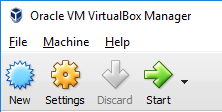
- Enter a name, select the operating system type and version, and set the memory size,
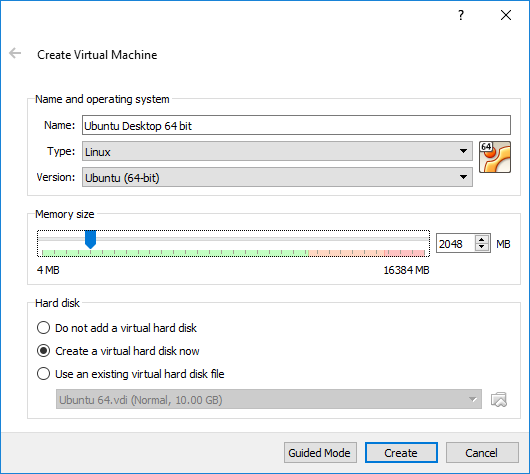
- Set the initial size of the virtual hard disk
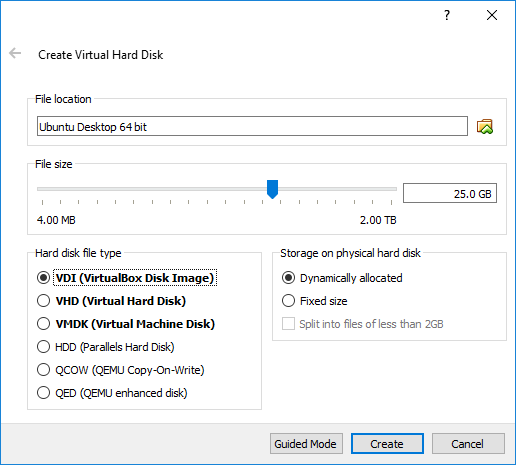
- Select the virtual machine icon and click the Start button,
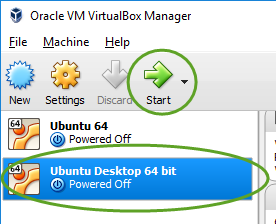
- Click the Browse icon and select the OS image file in the Downloads directory,
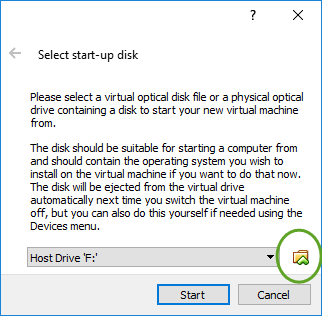
- Click the Start button
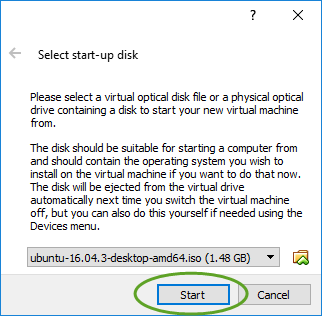
Configure VirtualBox for each virtual machine
Networking
To share the connectivity of the host computer with the virtual machine, mainly if you use VPN
- In Virtual box click Settings
- Select Network
- Attach the network adapter to NAT

Copy and paste
To enable copy and paste between the virtual machine and the host ( your workstation )
- On the General tab of the Settings page select the Bidirectional shared clipboard

Shared Folders
Specify the shared folder on your workstation
- In the VirtualBox menu select Preferences
- On the Shared Folders tab click the + icon
- To share the entire system drive, select the C: drive of your workstation
